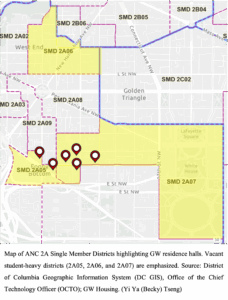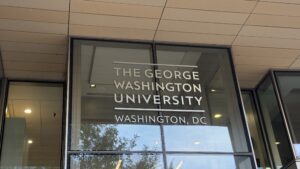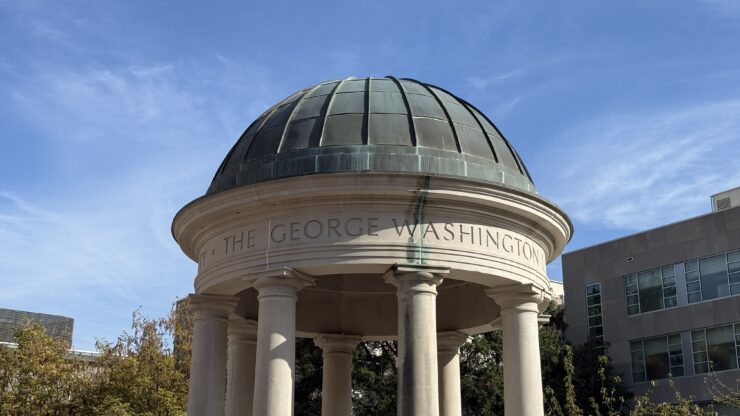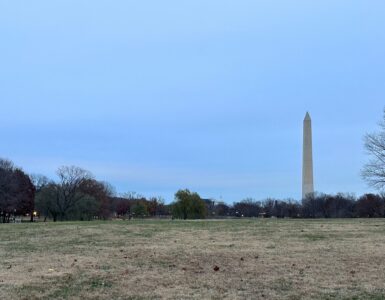The Foggy Bottom and West End Advisory Neighborhood Commission has been running with nearly half of its seats empty for months, a shortage that tests the limits of local representation and stretches its few remaining commissioners thin.
The ANC — one of D.C.’s smallest units of government — plays an outsized role in neighborhood decisions, from approving liquor licenses to reviewing zoning and construction plans. But with only six of nine seats currently filled, ANC 2A is barely meeting quorum, leaving little room for absence or turnover.
“When seats remain unfilled, the workload inevitably increases for the remaining commissioners,” said Kent Boese, executive director of the Office of Advisory Neighborhood Commissions. Boese’s office provides technical support to D.C. ‘s 40 ANCs but has no power to supervise them.
“Even with vacancies, ANCs can still function,” Boese said. “But outreach — especially to younger residents and students — remains insufficient.”
 That shortage has real consequences in Foggy Bottom and the West End, where the remaining commissioners are covering vacant districts. Sean Youngstone, who represents ANC 2A09 and serves as the ANC 2A’s treasurer, said commissioners now handle requests and reports for neighborhoods beyond their own.
That shortage has real consequences in Foggy Bottom and the West End, where the remaining commissioners are covering vacant districts. Sean Youngstone, who represents ANC 2A09 and serves as the ANC 2A’s treasurer, said commissioners now handle requests and reports for neighborhoods beyond their own.
“With only five out of nine seats filled earlier this year, we were just at the minimum to function,” said Youngstone. “If we lose one more person, we can’t hold official meetings.”
He added that the ANC 2A once fell below quorum and could only hold informal gatherings, unable to pass resolutions or take formal action.
The commissioner said vacancies not only increase workloads but also shrink the range of perspectives in neighborhood debates. “The more seats are filled, the more voices are heard — and that’s what makes local government work,” Youngstone said.
In a neighborhood where George Washington University occupies a large portion of ANC 2A’s area, he said the absence of student or faculty representatives leaves a major gap in understanding campus-related concerns.
“Having a student or faculty member on the commission would help us better understand how the university and the neighborhood interact,” Youngstone said.
Some residents, however, said the vacancies feel distant compared to other neighborhood problems.
“When things like homelessness or drug issues reach the point of an investigation or a crime scene, those vacancies stop mattering,” said Christian Ravenwind, a resident of ANC 2A. “At that point, both sides — the community and the city — are just trying to manage the consequences.”
Ravenwind said that while he is aware of the ANC 2A, the body’s influence often feels limited when broader social issues dominate public concern.
That awareness gap is even wider among students. One George Washington University student, Justin Chen, said he had never heard of the ANC before.
“I honestly didn’t know we even had one,” Chen said. “I never heard anyone talk about it.”
Ethan Lynne, president of the George Washington University Student Government Association, said that for most students, the ANC barely registers on their radar.
“Most students don’t really know what the ANC does,” he said. “That means we lose one more opportunity to have our voices heard in local decisions.”
He said student representation could improve outcomes on issues like housing, safety, and nightlife.
Lynne said the university and the ANC could promote collaboration by mentioning ANC opportunities in campus newsletters and reviving joint town halls, which ANC held in the past but have faded in recent years.
The university’s Office of Communications and Marketing declined to comment on the matter.

Boese agreed that awareness is part of the solution. He said some ANCs, like ANC 8D, had faced similar vacancy problems but later resolved them through consistent community engagement.
His office can help provide technical guidance and promote ANC visibility but cannot intervene directly in local appointments or elections, he added.
Other commissioners from ANC 2A didn’t to respond to requests for comment before deadline.
The vacancies in the Foggy Bottom and West End’s ANC reveal more than an administrative gap — they expose a fragile system of local governance that relies on volunteers and limited outreach.
For now, the commission remains functional, but its stability feels precarious.
“If we lose even one more commissioner, the lights go out — at least officially” Youngstone said.















Add comment